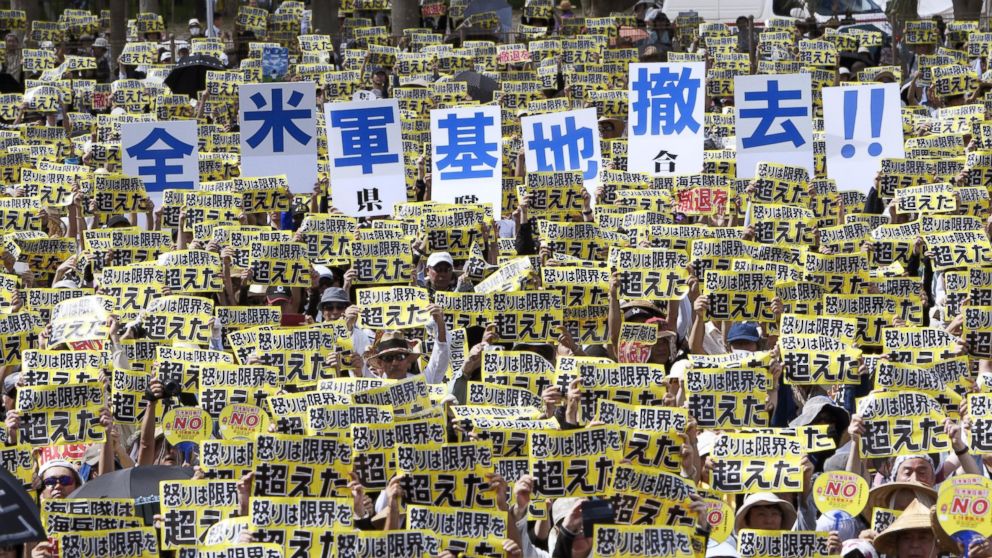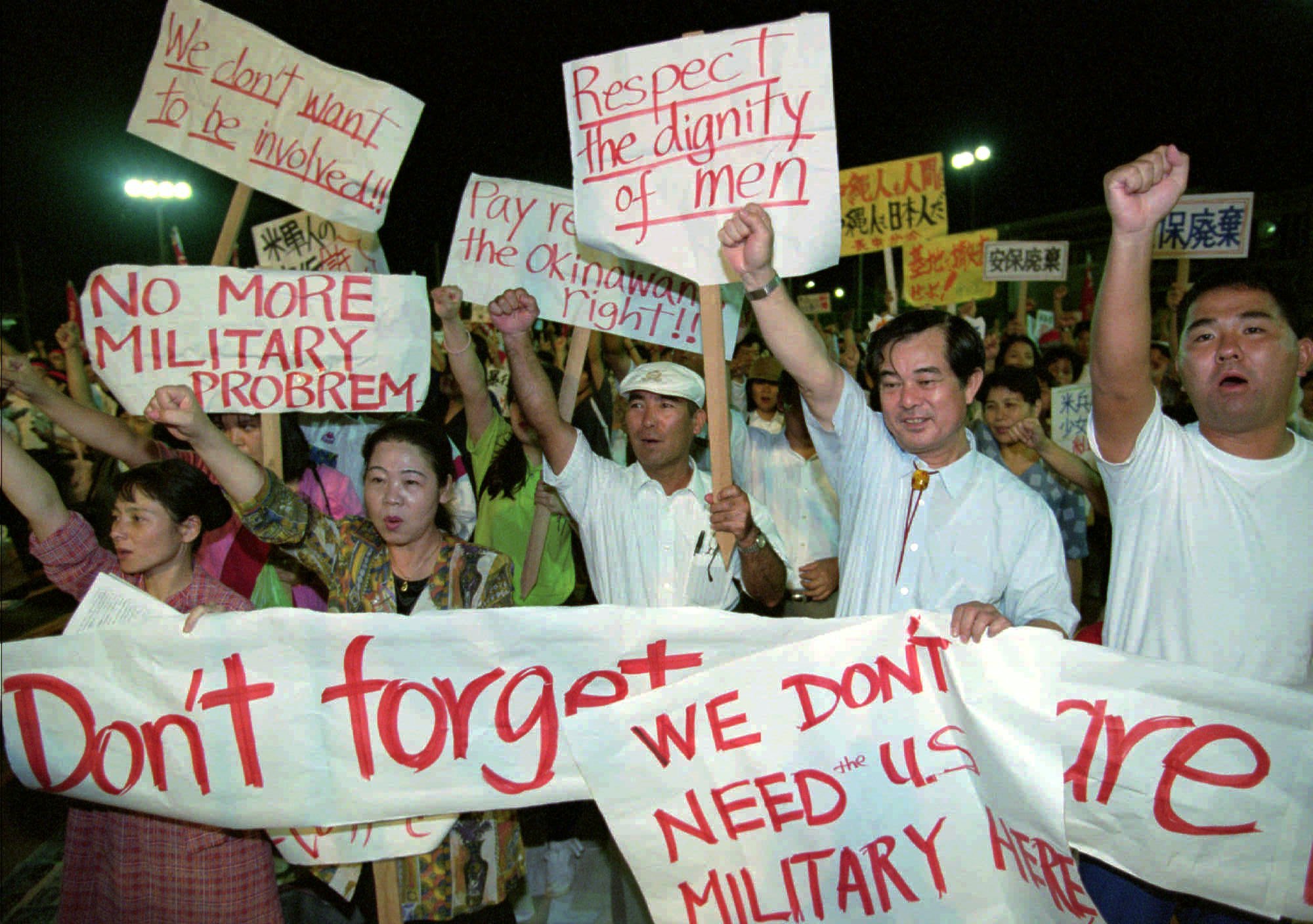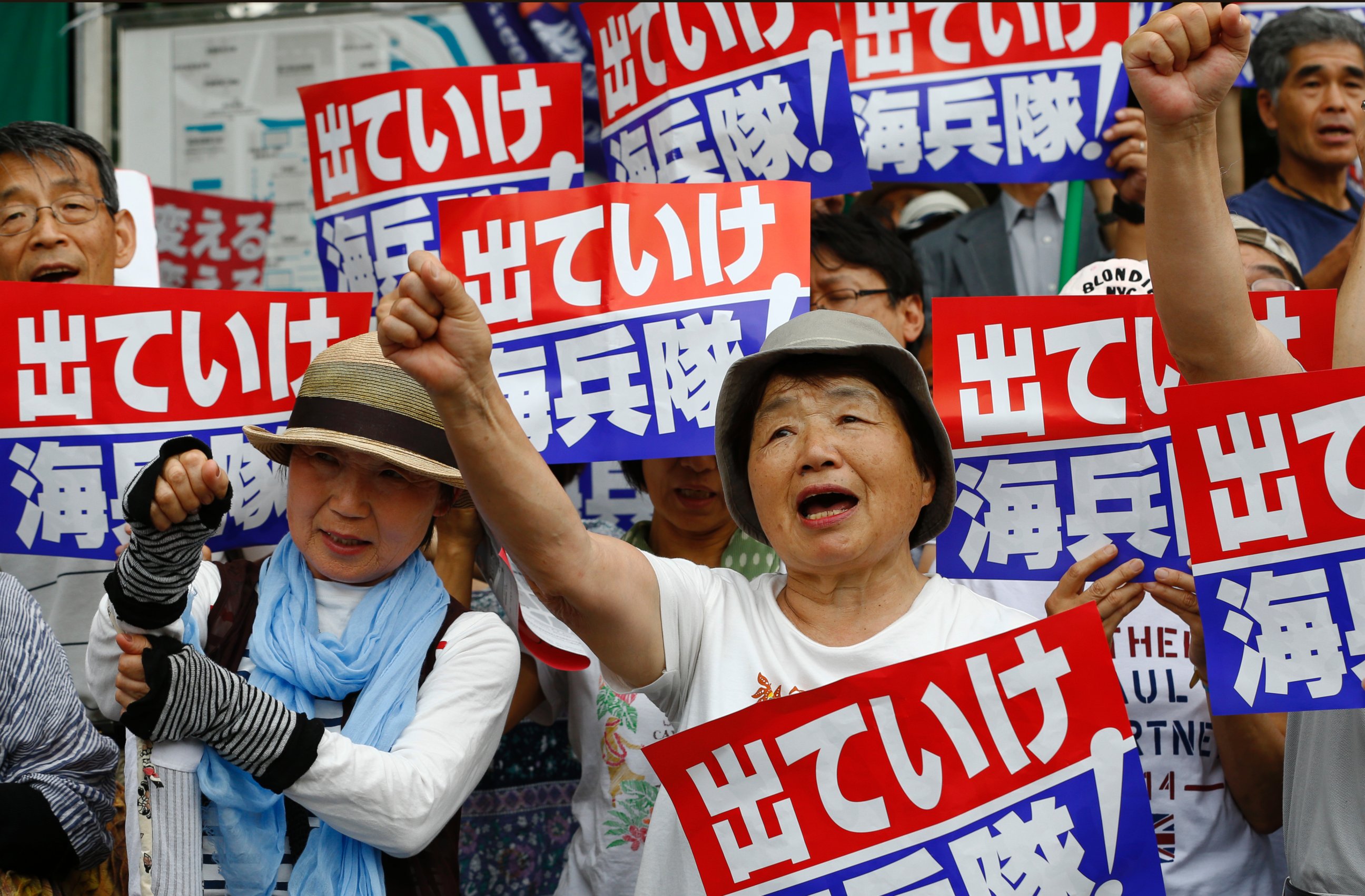Mass Protest Latest Sign of Opposition to US Military Presence on Okinawa
Many Okinawa residents want to end U.S. military presence on their island.

— -- The massive protests that have taken place in Okinawa, Japan, over a U.S. contractor's alleged rape and murder of a local woman underscores the long history of tensions on the island that has a large U.S. military presence there.
Roughly 65,000 people attended a rally on Sunday, many wearing black to signify mourning over the death of the woman, who had been missing for several weeks until her body was found last month, according to a report by the AP. A U.S. contractor, who is a former Marine, was arrested on May 19 in connection to the case.
The incident follows two previous allegations of sexual assault by U.S. military personnel in 2016.
Justin Castellanos, an American sailor, was arrested in March on a charge of raping a Japanese woman in Okinawa earlier this year. Castellanos, 24, who was based at Camp Schwab in northern Okinawa, was arrested after being suspected of dragging a Japanese female tourist into his room after finding her asleep in a hotel corridor. There, he allegedly raped her.
The Japan Times reported that Castellanos confessed to the crime after initially denying it.
Days after news of the Castellanos case broke, the military publication Stars and Stripes reported that a 33-year-old lieutenant in the U.S. Navy was arrested after he allegedly groped a 19-year-old Japanese woman on an airplane and punched her multiple times in the head.

The alleged violence against women in 2016 has stirred memories of earlier incidents, in particular the brutal gang rape of a 12-year-old girl in 1995 at the hands of three U.S. servicemen, who rented a van and used it to kidnap her. The men then duct taped the girl's mouth shut, beat and raped her, leading to prison sentences for the servicemen and a larger debate between the two countries about the presence of the American military in Japan.
In 2008, then-Secretary of State Condoleezza Rice, apologized to the Japanese for crimes committed by the U.S. military, including another alleged rape of a 14-year-old girl.
Okinawa Governor Takeshi Onaga told the crowd at Sunday's rally that he wanted to apologize to the woman for failing to protect her, according to the Associated Press. He also referred to the 1995 rape.
"We had pledged never to repeat such an incident," he said. "I couldn't change the political system to prevent that. That is my utmost regret as a politician and as governor of Okinawa."
Apart from the alleged sexual violence, Petty Officer 2nd Class Aimee Mejia allegedly drove drunk in the wrong direction on a freeway, slamming into two cars and injuring two people earlier this month. The U.S. Navy banned drinking and restricted off-base activity for its personnel in Japan as a response to Mejia's alleged behavior.
Many residents of Okinawa want the U.S. military to leave Japan altogether, according to a report published this January by the Congressional Research Service, a public policy research arm of the U.S. Congress. The report noted that "53,000 American military personnel, 43,000 dependents, and 5,000 Department of Defense civilian employees" live in Japan, and that this presence constitutes the largest in the Asia-Pacific region.

The report also indicated that the attitudes of native residents of Okinawa, where the majority of U.S. military personnel reside, toward the presence of the U.S. military are "generally characterized as negative, reflecting a tumultuous history and complex relationships with mainland Japan and with the United States."
Prime Minister Shinzo Abe of Japan and Takeshi Onaga, the governor of Okinawa, agreed this March to negotiate a relocation of Marine Corps Air Station Futenma, a base that has existed on the island since 1945, after residents protested.
As Japan seeks to relocate the base to a quieter place on the island, residents want the base removed altogether.
The Congressional Research Service report said there are two main concerns behind the opposition to the U.S. military presence: One is that "the American presence degrades the local quality-of-life with regard to personal safety, noise, crime, and the natural environment," and the second is tied to a more general sentiment of pacifism and anti-militarism.




